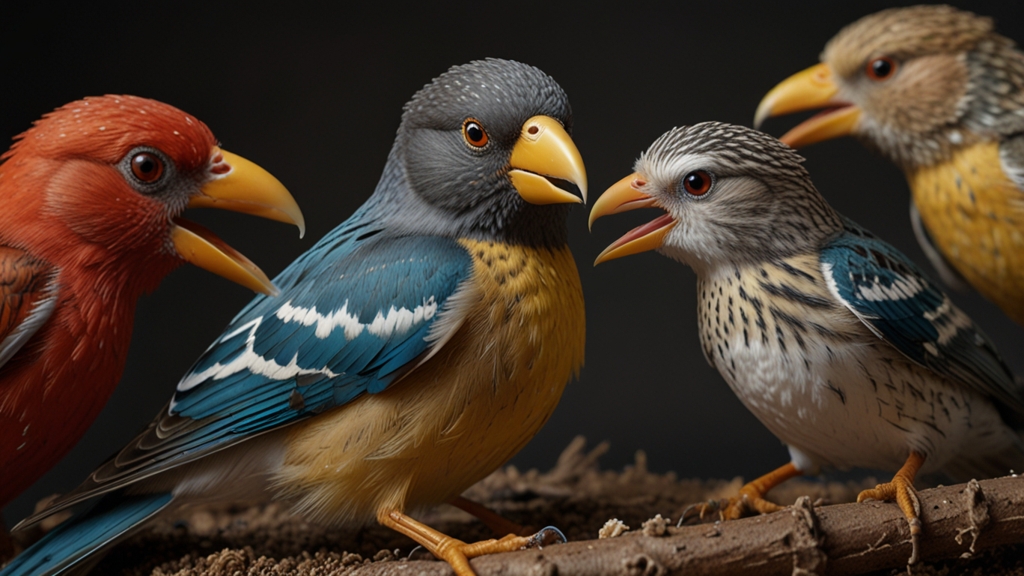Fun Facts That Will Tickle Your Brain
The world is full of fascinating details, mind-boggling trivia, and curious bits of information that can leave you both enlightened and entertained. Dive into these fun facts that promise to tickle your brain and maybe even change the way you see the world.
The Ancient Origins of Chewing Gum
Did you know that chewing gum has a history that dates back thousands of years? The ancient Greeks chewed a substance called mastiche, derived from the resin of the mastic tree, while the Mayans enjoyed chewing chicle, a sap from the sapodilla tree. It’s amazing to think that a habit so common today has such deep historical roots.
The Mysterious Blue Jay Mimicry
Blue Jays are not just visually striking; they are also remarkable mimics. These intelligent birds have been observed mimicking the calls of hawks, potentially to scare off other birds from food sources. The ability of Blue Jays to replicate other sounds showcases the incredible adaptability and cognitive prowess of avian species.
"Birds are the most endlessly fascinating creatures on earth." – David Attenborough
A Day on Venus
Here's a planetary puzzle for you: a day on Venus is longer than a year on Venus! Venus takes about 243 Earth days to complete one rotation on its axis, but it only takes about 225 Earth days to complete one orbit around the Sun. This unique rotational period makes Venus one of the most intriguing planets in our solar system.
Bananas: Berry Interesting
In the world of botany, things are rarely as they seem. For instance, did you know that bananas are classified as berries? Meanwhile, strawberries, which have "berry" in their name, are not true berries. The classification depends on specific botanical criteria that determine the structure of the fruit, making bananas one of the most surprising members of the berry family.
Honey: A Sweet Preservation Miracle
Honey is not just a sweet treat; it’s a marvel of natural preservation. Archaeologists have discovered pots of honey in ancient Egyptian tombs that are over 3,000 years old and still edible. The secret lies in honey’s low moisture content and acidic pH, which create an environment that is inhospitable to bacteria.
"The only thing predictable about life is its unpredictability." – Remy, Ratatouille
Human and Dolphin Names
It turns out that humans are not the only species to use names. Research has shown that dolphins use a system of unique whistles to identify themselves and others within their social groups. Each dolphin has a distinct whistle that acts much like a name, showcasing the depths of their social interactions and cognitive abilities.
Electric Trees
Natures often presents us with engineering marvels, and the quaking aspen is one such example. These trees grow clonally, meaning that a single root system can support an entire forest of genetically identical trees. Some of these aspen groups, like the Pando in Utah, are thought to be thousands of years old and weigh over 6,000 tons, making them the heaviest living organisms on the planet.
The Curious Case of the Tardigrades
Tardigrades, also known as water bears, are microscopic organisms that can survive some of the harshest environments imaginable. They can endure extreme temperatures, radiation, dehydration, and even the vacuum of space! Their remarkable resilience has made them a subject of intense scientific study, as researchers hope to unravel the secrets of their survival skills.
"Life finds a way." – Ian Malcolm, Jurassic Park
These fun facts are just the tip of the iceberg when it comes to the fascinating world we live in. Whether it’s ancient chewing gum, the mysteries of outer space, or the extraordinary capabilities of animals and plants, there’s always something new to learn that can tickle your brain and ignite your curiosity.









